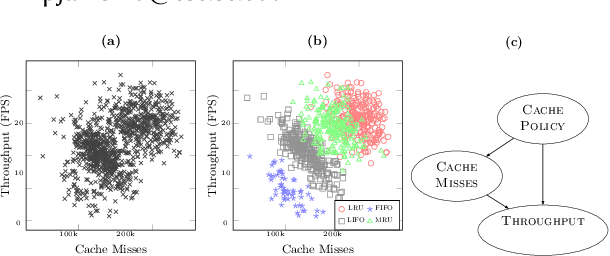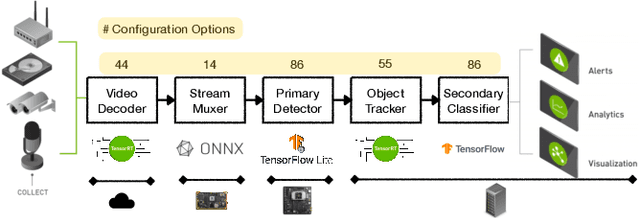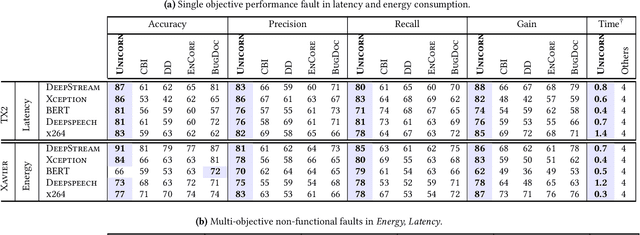Unicorn: Reasoning about Configurable System Performance through the lens of Causality
Paper and Code
Jan 20, 2022



Modern computer systems are highly configurable, with the variability space sometimes larger than the number of atoms in the universe. Understanding and reasoning about the performance behavior of highly configurable systems, due to a vast variability space, is challenging. State-of-the-art methods for performance modeling and analyses rely on predictive machine learning models, therefore, they become (i) unreliable in unseen environments (e.g., different hardware, workloads), and (ii) produce incorrect explanations. To this end, we propose a new method, called Unicorn, which (a) captures intricate interactions between configuration options across the software-hardware stack and (b) describes how such interactions impact performance variations via causal inference. We evaluated Unicorn on six highly configurable systems, including three on-device machine learning systems, a video encoder, a database management system, and a data analytics pipeline. The experimental results indicate that Unicorn outperforms state-of-the-art performance optimization and debugging methods. Furthermore, unlike the existing methods, the learned causal performance models reliably predict performance for new environments.
 Add to Chrome
Add to Chrome Add to Firefox
Add to Firefox Add to Edge
Add to Edge